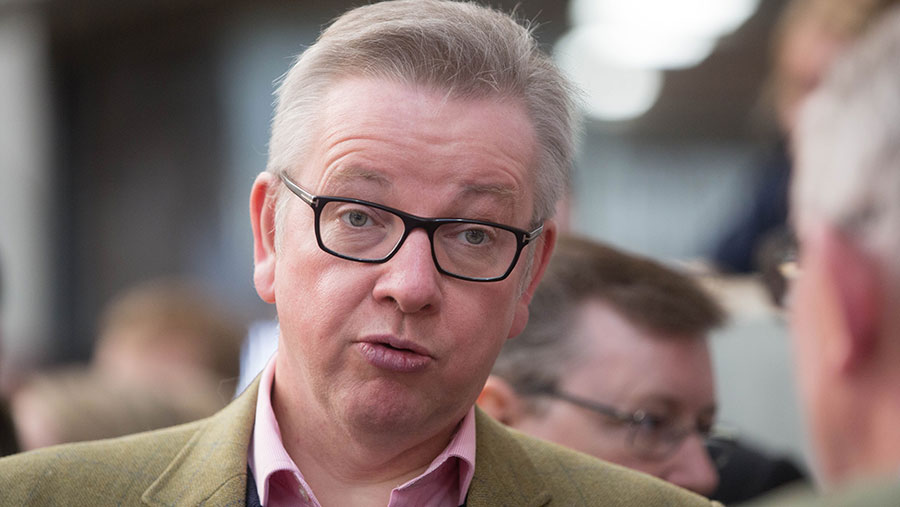Net zero slowdown will intensify transition pain for farmers
 Michael Gove © Tim Scrivener
Michael Gove © Tim Scrivener Slowing down current plans to reach net zero by 2050 will leave farmers facing tougher rules in future with less time for transition, agricultural chiefs have warned.
Prime minister Rishi Sunak has said the drive to reach England’s net zero target should not “unnecessarily give people more hassle and more costs in their lives”.
His comments follow an earlier intervention from levelling up secretary Michael Gove, who became the first member of the cabinet to call for a relaxation of the government’s green measures, saying net zero must not be treated as a “religious crusade”.
See more: Food security threatened by lack of government support, report warns
Environmental policies have been in the spotlight since the Conservative victory in the by-election in Boris Johnson’s old seat of Uxbridge and South Ruislip, where Labour London mayor Sadiq Khan’s Ultra Low Emission Zone (ULEZ) was a key campaign issue.
A number of Conservative backbench MPs have also been agitating for changes to the government’s green proposals through the Net Zero Scrutiny Group for more than a year, with members claiming current plans will lead to electoral defeat.
But Martin Lines, chief executive of the influential Nature Friendly Farming Network, told Farmers Weekly that diluting existing commitments on net zero, as well as on clean water, air and biodiversity, would only lead to bigger problems for farmers further down the line.
“At the moment we’ve got some pretty ambitious targets that are going to be challenging for the industry to deliver on a six- to 10-year, or 30-year timeframe,” he said.
“They are legally binding targets the government has signed up to, so if we water them down for three or four years or a parliamentary term, that transitional change is going to be very short and very, very painful for many farming businesses.
“We will be forced to change, and that does not give us a chance to adapt, improve and invest in a better future.”
NFU deputy president Tom Bradshaw said what really mattered to the industry was stability, even with a 2024 general election looming, and more net zero support for farmers within the Environmental Land Management (ELM) scheme.
“It cannot be like this for the next 15 months, where both parties are jumping from one policy to another and trying to work out what’s going to get the vote,” he said.
“I do think having a clear direction of travel and policy helps the sector. We’ve been bereft of that within the ELM sphere for years now, and with the net zero policy it seems to be they’re delaying targets and implementation dates, but they’ve still got this 2050 legal commitment.
“If they don’t take the easy actions and steps now, it becomes more and more difficult to deliver over time.”
Mr Lines also suggested talk of slowing down net zero ambitions at the top of government would lead to a drop in research and development in key areas, such as the replacement of diesel with fuels such as hydrotreated vegetable oil.
“My biggest worry is they are going to take the attention away,” he said.
“We know there are many farmers with older tractors who will not be replacing them very quickly, and we need to help them find an alternative fuel source.”
A government spokesman said: “Action to tackle and adapt to climate change and restore nature is crucial for our food security. We remain fully committed to achieving net zero by 2050 and halting nature’s decline by 2030.
“Farmers and land managers are important partners in delivering those commitments as set out in our Environmental Improvement Plan and Net Zero Growth Plan.
“Our new farming schemes will support and incentivise farmers to adopt sustainable farming practices and invest in new technologies.”
